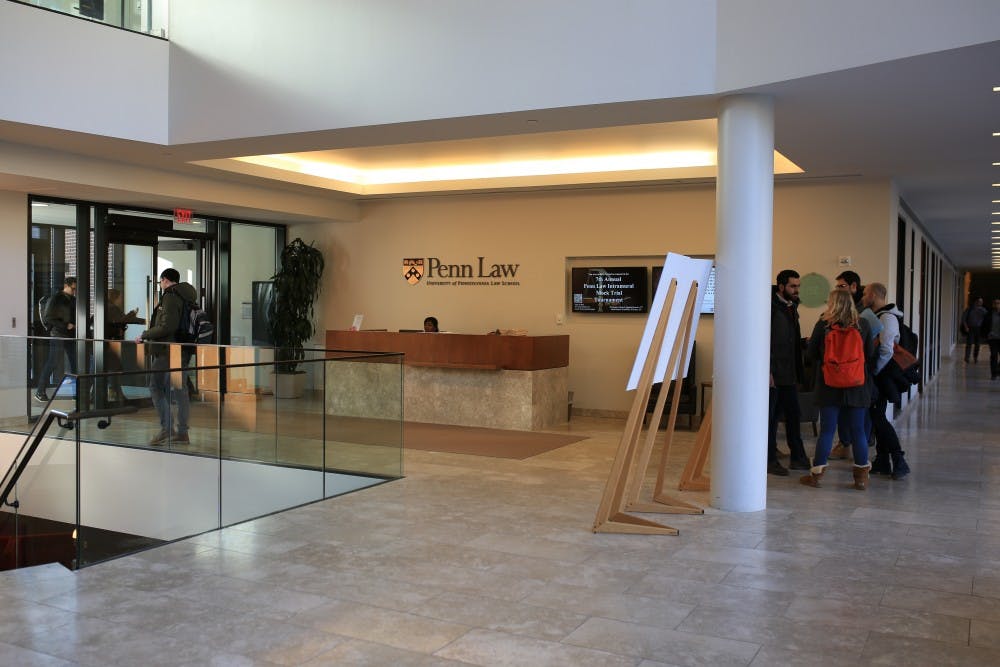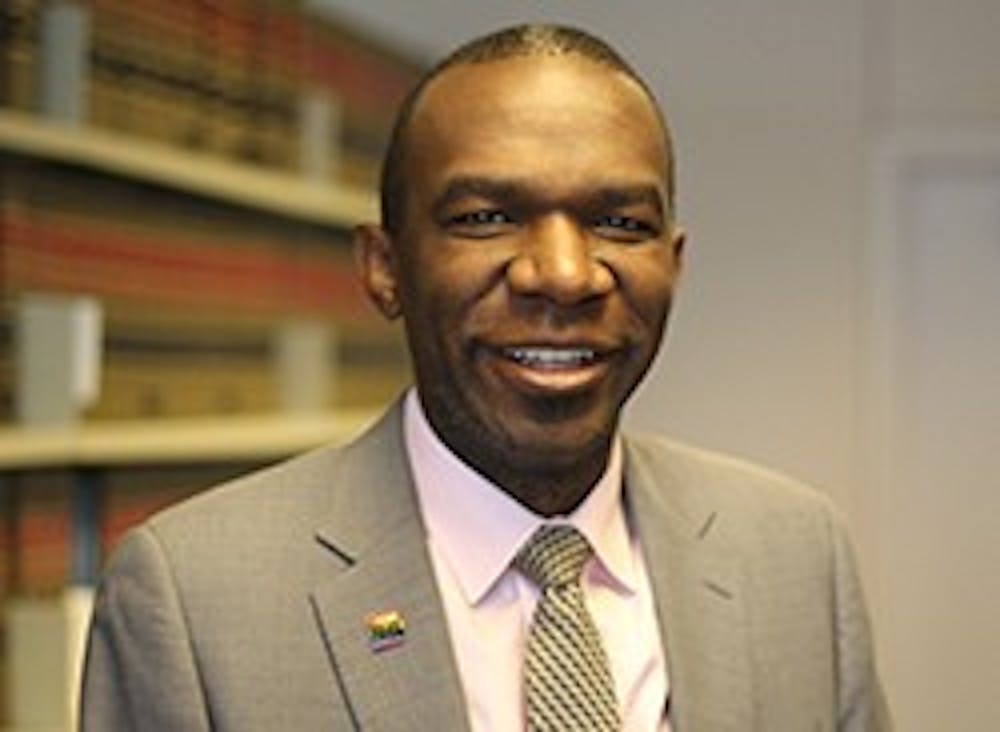
Philadelphia’s former chief lawyer will start working full time at Penn Law School this month.
Sozi Tulante has served for two years as city solicitor, representing the city in lawsuits and advising every department, agency, and commission of the city on legal matters.
Tulante left his post on March 9 and will join Penn Law as a full-time advisor and lecturer on March 19. Tulante has been a part-time adjunct lecturer in prosecutorial ethics at the Law School since 2012, teaching late classes that wouldn’t conflict with his “day job.”
As the Philadelphia Inquirer reported, Tulante led the city in filing lawsuits against prescription opioid manufacturers accused of fueling Philadelphia’s opioid epidemic and Wells Fargo for discriminatory lending practices. He also successfully sued the United States Department of Justice for its decision to withhold funds from Philadelphia because of its “sanctuary city” status.
Tulante said that the high-stress and hectic environment causes a high turnover rate for city solicitors.
“There’s no typical day,” he said. “You’re essentially acting as a lawyer/firefighter on behalf of the city.”

Sozi Tulante
Tulante’s path to the city solicitorship — and now to Penn Law — has been a winding one, which is something he hopes to emphasize to students he advises.
“I’ve been a prosecutor, I’ve been a defense attorney, and I’ve been solicitor,” Tulante said. “So I’ve worn many hats, and now I hope to use my experiences to educate and empower my students.”
Tulante grew up in Philadelphia as a first-generation American and political refugee born in Zaire (now the Democratic Republic of Congo), according to a Penn Law press release. After graduating from Harvard Law School in 2001, Tulante worked in private practice before moving to the public sector.
“There isn’t any one way to be a public service lawyer,” he said. “And in addition to that, you can do some of this work even if you’re in the private sector."
At Penn, Tulante said he plans to continue teaching his upper-level prosecutorial ethics class, in which he uses current events and cases he finds in the news to “tease out some of the principles of prosecutorial discretion.”
The curriculum has examined cases like the George Zimmerman trial and now, Special Counsel Robert Mueller’s investigation into Russian interference in the 2016 United States elections. Tulante also brings in federal judges, former district attorneys, and defense attorneys to speak to his students.
Many of his students remember Tulante fondly and are eager for him to join Penn full time.
2017 School of Arts and Sciences and Penn Law graduate Jamil Favors, who served as the Penn Law Class of 2017 president, took Tulante’s class and said he benefited from Tulante's personal advice.
“While he was the city solicitor, he took the time out of his busy schedule to let me come down to his office and just like kind of run down my life plan with him for about 45 minutes to an hour,” Favors said. “He allowed me to ask a lot of really candid questions about why he made decisions in his career, and he’s very open about his answers. There are not a lot of people who do that.”
2015 Penn Law graduate Sophie Reid said she remembers Tulante as an incredible communicator and his class as “a schedule highlight.”
“He was teaching … to a bunch of pretty cynical, exhausted law students on a Wednesday evening, [which] is an insanely tough gig for even the most agile, experienced faculty member,” Reid said. “Sozi was just an adjunct and he would just sort of breeze into class and make it look insanely easy.”
Tulante expressed enthusiasm about coming to Penn full time, and said that he thinks the current political climate in America is an "exciting time" for lawyers.
“We’re thinking through … how to divorce the political debates from the legal issues," Tulante said. "I’m excited because people are more interested in those issues than they ever have been before.”
Though Tulante has not served in any official capacity as an advisor at Penn, he’s been mentoring prospective lawyers for years. Geneva Brown, who received a juris doctor degree from Penn Law in 2013, met Tulante in 2006, when she was considering attending law school.
“He volunteered to serve as a mentor,” she said. “So in that capacity, even before he was my professor, he shared a lot with me about his job as a lawyer and his path up until that point.”
Favors was also president of Penn’s Black Law Student Association and said that a group chat of alumni reacted positively when Tulante announced his move to work at Penn full time.
“I can speak for a ton of [alumni] that say he’s going to be a great addition to Penn," Favors said. "For any student that wants to go into law, for any student that’s a first-generation American, for any student that didn’t come from a traditional background, his story is one that motivates and shows that no matter where you come from, these are things you can accomplish."
The Daily Pennsylvanian is an independent, student-run newspaper. Please consider making a donation to support the coverage that shapes the University. Your generosity ensures a future of strong journalism at Penn.
Donate




